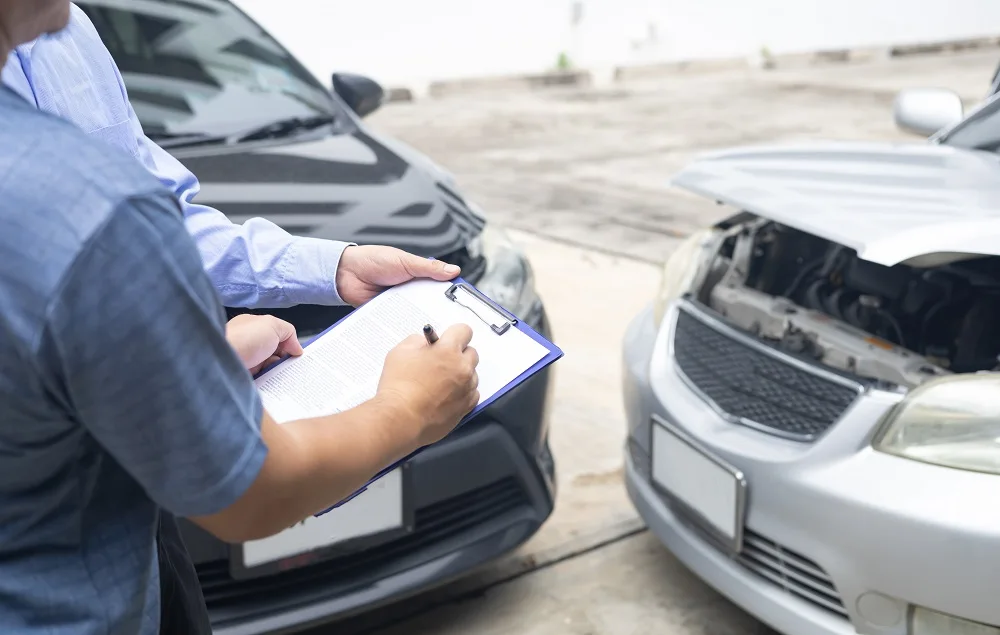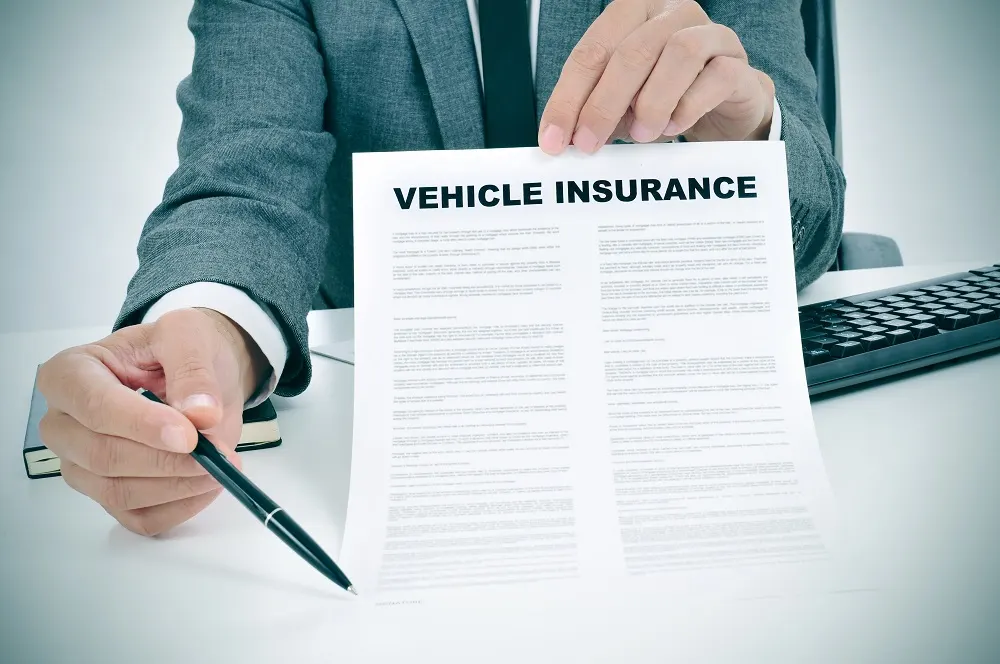Following a crash in Indiana, you may be wondering what kind of settlement you stand to receive from an insurance claim. While every accident is unique, understanding typical compensation ranges can help you set realistic expectations.
If you've been injured in a wreck, the Indianapolis car accident attorneys at CohenMalad, LLP, can guide you through the claims process and help you pursue fair compensation for your losses.
How Much Can You Get from an Auto Accident Settlement in Indiana?
In Indiana, car accident settlement amounts can range from $5,000 to $75,000-plus. The following table breaks down the possible ranges for different types of accidents:
What Factors Influence Car Accident Settlement Values?
Your potential settlement will come down to several crucial elements:
.webp)
Injury Severity
The nature and extent of your injuries can dramatically impact the final settlement amount. Serious injuries require more extensive treatment and typically have greater life impacts, leading to higher compensation.
Economic Damages
Economic damages are the quantifiable financial losses resulting from your accident. They may include:
- Medical expenses: All costs for emergency care, hospital stays, surgeries, medication, physical therapy, and diagnostic tests already incurred.
- Long-term care costs: Anticipated expenses for ongoing treatment, rehabilitation, medical equipment, prescription medications, and potential surgeries in the years ahead.
- Lost income: Wages lost while recovering, reduced earning capacity, and potential future income losses if you can’t return to your previous occupation.
- Property damage: The cost of repairing or replacing your vehicle or personal belongings damaged in the crash.
- Out-of-pocket expenses: Compensation for transportation to medical appointments, home modifications, and hiring help for tasks you can't perform on your own.
Economic damages tend to make up the bulk of the financial recovery in most personal injury claims.
Non-Economic Damages
Non-economic damages, which often make up a significant portion of serious injury settlements, reflect harder-to-quantify impacts, such as:
- Physical pain: Compensation for the pain you’ve experienced during and after the accident.
- Emotional suffering: Anxiety, depression, PTSD, and other psychological effects that have arisen due to the crash.
- Loss of enjoyment of life: The inability to participate in hobbies, athletic pursuits, and other activities you previously enjoyed.
- Loss of consortium: The impact on your relationship with your spouse or other close family members.
Non-economic damages like pain and suffering may be calculated using either the "multiplier method" (1.5-5x economic damages) or a "per diem" approach, which assigns a daily dollar value to the victim’s discomfort. Documentation of pain levels, medication needs, and treatment frequency can influence these calculations considerably.
Share of Responsibility

Indiana's comparative fault system reduces accident victims’ compensation based on their share of responsibility, allowing them to seek damages provided their liability doesn't exceed 50%. For example, if you’re found to be 30% at fault for your crash and are eligible to receive $100,000 in damages, you could only recover $70,000.
Common partial fault scenarios in car accidents include:
- Speeding when another driver runs a stop sign.
- Following too closely when someone makes an improper lane change.
- Two or more motorists driving while distracted.
Proving that the other driver bears most responsibility may require accident reconstruction analysis, witness testimony, or video evidence that shows precisely how the accident occurred.
Insurance Limits
The at-fault driver's policy maximum imposes a practical ceiling on what you can recover through insurance alone.
Indiana's minimum requirements are often insufficient for serious injuries. They are:
- $25,000 for injuries to any single person.
- $50,000 total for all injuries in one accident, regardless of the number of victims.
- $25,000 for all vehicle and property damages combined.
With severe injuries easily generating medical bills in excess of $100,000, these minimum coverage limits frequently fall short, requiring victims to explore additional compensation sources, such as underinsured motorist coverage or direct claims against the at-fault party's assets.
UM/UIM Coverage
Your own auto policy’s uninsured/underinsured motorist (UM/UIM) coverage becomes vital when the at-fault driver has inadequate or no insurance. UIM limits determine your maximum additional compensation. Negotiating with your insurer may be necessary, as they could attempt to minimize payouts.
The minimum liability limits in Indiana are as follows:
- Uninsured motorist bodily injury: $25,000 per person/$50,000 per accident.
- Uninsured motorist property damage: $25,000 per accident.
- Underinsured motorist bodily injury: $50,000 per person.
Commercial Vehicle Insurance

Accidents involving commercial vehicles like trucks and delivery fleets typically present higher insurance limits, which can be crucial for achieving fair and adequate compensation when severe injuries are an issue.
Number of Injury Claims
In accidents with multiple injured parties, insurance coverage is divided among the victims, with those who are more badly injured often receiving larger shares. Insurance may be insufficient when several individuals are affected by serious injuries, creating a need for other recovery options.
How to Increase Your Potential Car Accident Settlement
You’ll need to take the following steps to avoid claims of liability and secure comprehensive compensation for your claim:
- Don't apologize: Statements like "I wasn't looking" or even “I’m sorry” can undermine your claim. Let the evidence indicate who's responsible, not your words.
- Don't delay medical treatment: Taking too long to seek care could allow your insurer to argue that your injuries weren't caused by the crash or aren't as serious as you claim.
- Don't discuss the accident on social media: Posting about your accident or showing yourself engaging in strenuous activities could jeopardize your personal injury claim.
- Don't accept a quick settlement: Taking the first offer you get before understanding the full extent of your situation will likely lead to inadequate compensation.
- Don't neglect documentation: A lack of records relating to medical bills, lost wages, and other losses will harm your ability to prove your claim's worth.
A skilled personal injury attorney can help you avoid these and other missteps and preserve your right to pursue compensation for your injuries and other losses.
Steps for Strengthening Your Car Accident Claim
Take these steps to strengthen your position when seeking fair compensation.
Keep Detailed Records
Take photos or videos of the accident scene, capturing all damage to the vehicles and the surroundings. Make notes about your injuries, including how they happened and how they've affected your daily life. Keep all medical bills, receipts, and any records of money you've lost from missed work or other expenses.
Collect Witness Contact Information
If there were any witnesses to the incident, ask them for their names, phone numbers, and email addresses. Witnesses can provide valuable, unbiased accounts of what happened, which can be critical for establishing fault and supporting your claim.
See a Doctor Right Away and Retain All Medical Records
Get checked out by a doctor as soon as possible, even if you feel okay. When you do, hold on to all of your medical records, including doctor's notes, diagnoses, and treatment plans. This will help you prove that your injuries were the direct result of the accident and demonstrate the extent of your medical needs.
Think About Future Costs and Long-Term Impacts

It’s imperative to ensure that your settlement covers all potential future medical bills, including ongoing treatments. Also, consider any income you might lose because of your condition, both now and in the future. Take stock of how the accident might affect your ability to work or live your life over the long term.
Consider Mediation
If settlement talks grind to a halt, a professional mediator can help you and the at-fault party’s insurer reach an agreement without going to court. Mediators help the parties to a dispute find common ground and facilitate fair outcomes.
Consider Filing a Lawsuit If Needed
If mediation doesn't work or the insurance company isn't negotiating in good faith, you might need to file a lawsuit to recover the financial assistance you need. Since this involves going to court, it's generally a good idea to get a lawyer involved.
In Indiana, the statute of limitations for filing a personal injury lawsuit related to a car accident is two years from the date of the accident. You must act quickly to preserve your right to compensation.
Seek Fair Compensation for Your Losses with CohenMalad, LLP
Average settlement figures only tell part of the story. What matters most is how your unique injuries, financial losses, and life disruptions translate into fair compensation for your specific situation. Indiana's legal procedures and insurance requirements create a complex landscape that can be challenging to find your way through alone.
The insurance companies have teams of adjusters and attorneys working to minimize what they pay you. Shouldn't you have a dedicated ally fighting just as hard on your side?
The Indiana car accident attorneys at CohenMalad, LLP, understand the tactics insurers use to devalue and deny claims and know how to build compelling cases that result in meaningful settlements.
Don't risk leaving money on the table by accepting less than you deserve. Contact our team today to schedule a free consultation.

Injured in a Car Crash in Indiana?
Don't settle for less than you deserve. Our experienced car accident attorneys are available for a free consultation.





.svg)
.svg)